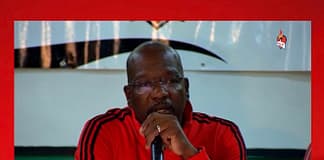The trial of a Chinese billionaire charged in a United Nations bribery case did not begin on Monday as scheduled.
U.S. District Judge Vernon S. Broderick agreed to the government’s request to move the start of the trial of Ng Lap Seng to late June, prosecutors said in a letter responding to a defense submission earlier in the day. Jury selection had been scheduled to start today.
Ng, 68, has been living in a luxury Manhattan apartment under 24-hour guard under a USD50 million bail agreement for the majority of time since his September 2015 arrest. He has pleaded not guilty to charges alleging he contributed a portion of over $1 million in bribes that reached a former U.N. General Assembly president several years ago. The judge has declined to ease bail conditions so Ng could spend more time outside his apartment.
Prosecutors say Ng joined a conspiracy to influence the United Nations because he hoped bribes would speed construction of a U.N. conference center in Macau that Ng hoped would be the biggest in the world. The center has not been built.
Defense lawyers have argued in court papers that the prosecution is politically motivated, saying the United States wanted to block construction of the U.N. center in China because it wanted to slow the progress of Chinese influence over developing nations. The conference center was supposed to serve southern hemisphere nations.
In a letter to the judge Sunday, defense lawyer Tai H. Park did not oppose the government’s Friday request to put off the trial for 30 days so it could argue that newly discovered classified materials related to the case should not be required to be turned over to the defense. But he complained that the last-minute request to delay the trial was “undermining Mr. Ng’s important right to a speedy trial.”
In response, the government said the defense was distorting the history of the case’s progression to trial. It said defense lawyers had repeatedly consented to delays in the trial, including so that plea negotiations could occur and for a subsequent one-month delay of the trial start.
In his letter, Park also referenced a telephone conference in the case late Friday, saying Broderick had questioned why the government wanted a full month delay.

“When the court asked why the government needs such a long period of time, the government essentially described a bureaucratic system that required agency consent and the like,” he wrote.
Advertise with the mоѕt vіѕіtеd nеwѕ ѕіtе іn Antigua!
We offer fully customizable and flexible digital marketing packages.
Contact us at [email protected]















